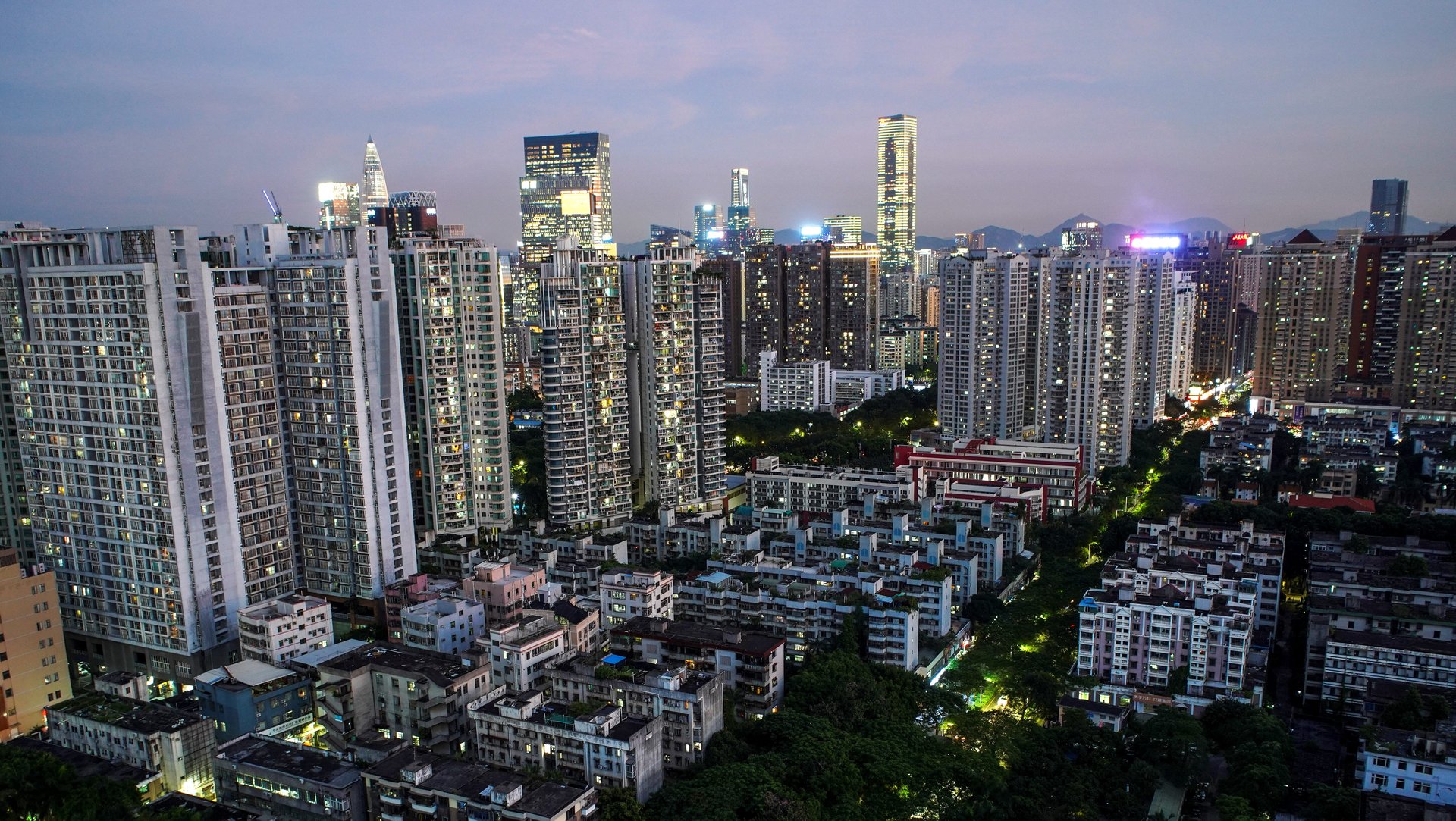Shenzhen, a controlled experiment, represents Xi Jinping’s ideal financial hub
Four decades of experimentation in Shenzhen, the southern Chinese city that was designated a special economic zone in 1980, have yielded impressive results. It serves as the headquarters of the nation’s prized tech giants Huawei and Tencent, manufactures much of the world’s electronics, and its GDP last year surpassed neighboring Hong Kong’s.


Four decades of experimentation in Shenzhen, the southern Chinese city that was designated a special economic zone in 1980, have yielded impressive results. It serves as the headquarters of the nation’s prized tech giants Huawei and Tencent, manufactures much of the world’s electronics, and its GDP last year surpassed neighboring Hong Kong’s.
And when Chinese leader Xi Jinping makes a major speech there tomorrow (Oct. 14), the takeaway message will be clear: Shenzhen represents the ideal financial and technology hub. Or, as a five-year blueprint for Shenzhen published this week put it (link in Chinese), “a model city for a strong nation.”
Beijing’s plan for Shenzhen will explore granting it greater autonomy in areas that could include land use, foreign investment in the tech sector, and patents for innovations, with the aim of attracting global talent and foreign capital to the city. The idea is to more closely tie China’s financial system with the global market, in part by using Shenzhen as a launch pad for plans to internationalize the yuan. Likely for that reason, Shenzhen became the test bed for the largest trial of China’s digital yuan yet, just days ahead of Xi’s arrival. China often experiments with ideas in particular cities in this way, before rolling them out on a national level.
The corollary of Shenzhen being held up as China’s ideal finance hub is the question of what that says about Hong Kong’s future, long seen as one of the world’s foremost international financial centers and a crucial conduit for the majority of China’s foreign direct investments. Increasingly, it seems that Hong Kong will play less of a solo star role, and more of a partner in crime alongside Shenzhen, as China absorbs the supposedly semi-autonomous city under its direct rule. Hong Kong’s leader Carrie Lam said as much in an interview yesterday (link in Chinese), when she repeatedly emphasized the need for Hong Kong and Shenzhen to “collaborate,” and that both cities have much to gain from working closely together.
That Lam abruptly delayed her annual policy address—arguably her most important political event of the year—just two days before it was scheduled to take place so she could instead travel to Shenzhen and then Beijing, crystallizes Hong Kong’s new status as relegated to playing second fiddle, rather than being a global finance hub and “Asia’s world city” in its own right.
It’s also telling that Shenzhen is being granted greater autonomy over its legal and administrative affairs at a time when Hong Kong’s autonomy has been systematically dismantled over the past several months. While the state’s nationalistic tabloid Global Times presented Xi’s Shenzhen visit as giving a confidence boost to Hong Kong’s economy (the city’s also stock market reacted as such), it’s a reminder that Beijing will continue to offer Hong Kongers certain limited freedoms—but only as long as it’s convenient and aligns with the state’s economic goals.